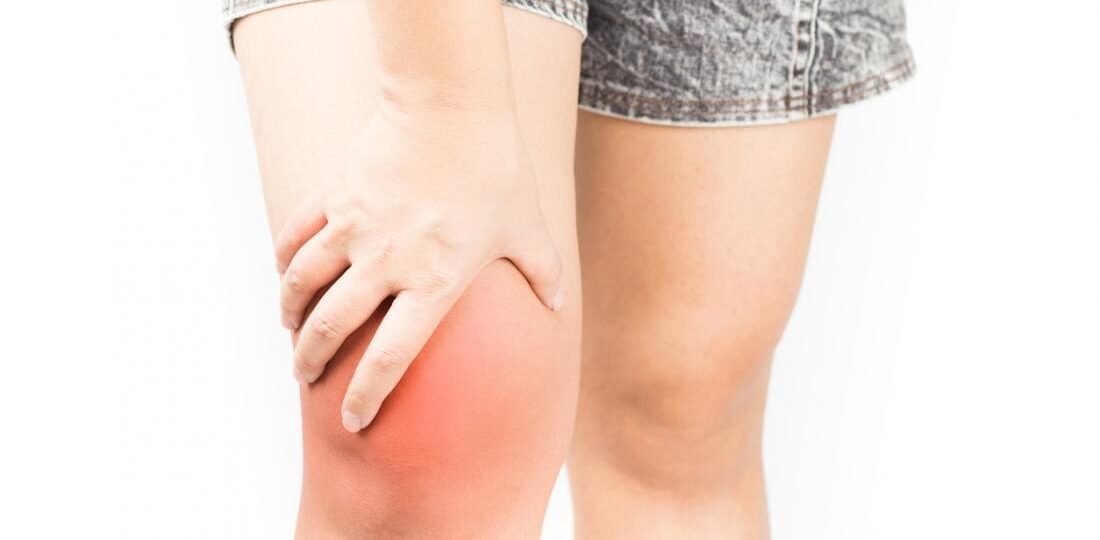
Knee swelling involves fluid deposition in your knee joint. That could be due to traumas such as sports accidents or fitness conditions like arthritis. However, it is the most injured joint. An individual can initiate treating the majority of root causes of knee swelling at home by practicing rest and prescription-free medications.
You would possibly observe other signs when you have a swollen knee, consisting of:
- Knee ache.
- Stiffness or firm feeling.
- Redness or change in color.
- A sensation of heat or warmth.
Go to a healthcare provider in case you experience a trauma or sports-related injury. Consult an expert if the swelling persists and you’re in extreme pain or unable to move your knee.
What are the Most Common Causes of Knee Swelling?
Healthcare experts classify knee inflammation as either non-traumatic or traumatic.
Traumatic knee inflammation usually means an individual has suffered an injury. Sports concussions are the most general causes of knee inflammation, including:
- ACL tears
- Meniscus tears.
- Hyperextended knees.
- MCL tears.
- Bone fractures.
- Dislocations.
- Patellofemoral pain syndrome (PFPS).
- Sprains.
Nontraumatic knee swelling involves typical arthritis. Destructive arthritis (osteoarthritis) along with inflammatory arthritis (such as rheumatoid arthritis or psoriatic arthritis) can lead to swelling.
Other fitness conditions that might cause non traumatic knee inflammation include:
- Infections.
- Bursitis.
- Autoimmune disorders.
- Tendinitis.
Care and Treatments of Swollen Knee
The way you treat knee swelling varies according to the type you have. Go to healthcare immediately if you observe an injury or shock.
You can first treat non traumatic knee swelling with domestic treatments. Don’t play games or do any movement that can put extra stress on your knee joint. Over-the-counter acne medications such as NSAIDs (steroid-free anti-inflammatory drugs) along with acetaminophen can eliminate pain and decrease inflammation. Talk to a doctor before taking pain relievers for more than 10 consecutive days.
Apply the RICE method as early as you observe pain or related symptoms:
- Rest: Ignore the activity that leads to your injury. Don’t excessively use your knee during its healing.
- Ice: Apply a cool compress or ice covers wrapped in a small towel on your knee for at least 15 minutes once, a few sets a day.
- Compression: You might wrap your knee area in an elastic cover to help reduce inflammation.
- Elevation: Move your knee and leg as high above the limit of your heart as you can.
A healthcare expert might suggest several other treatments if you have a specific concussion or health issue. You might require:
- Crutches.
- A brace is involved in holding your knee properly in place.
- Physical exercises.
- Corticosteroids.
Surgery for Knee Swelling
The majority of people who observe knee swelling don’t want surgery. However, if the swelling is the outcome of an injury like a torn filament or meniscus tear, you may want a knee arthroscopy to restore the damage to the inner knee.
Your provider would possibly propose a knee substitute (arthroplasty) if you experience arthritis and signs like inflammation and aches in your knee that make it tough (or impossible) to take part in your day-to-day activities. Your expert will generally advise a surgical operation if different treatments don’t relieve your signs and symptoms.
In case you want knee surgical treatment, your provider or physician will let you know what to expect and the duration it will take to recover.
How Can You Prevent Knee Swelling?
During games or other physical sports:
- Use the proper saving equipment.
- Don’t “play along with the pain” if your knee feels hurt during or after physical movements.
- Provide your body with time to rest and heal after intense movements.
- Stretch and keep up before starting sports or working out.
- Cool down and follow stretches after physical movements.
Follow these usual safety points to reduce your chance of an injury:
- Ensure your home and office are free from the hustle that could move you or others.
- Always utilize the proper device or equipment domestically to reach objects. Never stroll on chairs, countertops, or tables.
- Use your stick or walker in case you have discomfort walking or have an increased chance of falling.
When Should You See a Healthcare Provider With a Swollen Knee?
Go to a knee pain doctor in Dallas if you experience an injury or trauma. See a doctor if you have non-traumatic inflammation and at-home remedies don’t improve your signs in a few hours.
Visit the emergency class if you observe any of the following:
- Chronic ache.
- You are unable to move or utilize your knee.
- Major stress like a fall through height (like a high ladder) or a road accident.
Conclusion
Contact a healthcare provider at pain management in Dallas if knee pain prolongs and does not improve following rest or happens with other signs. Also, visit a doctor following a sudden concussion, such as sudden force trauma.
Additionally, it is vital to receive expert care if there are other indications of damage, such as a high body temperature or pus arriving from a wound.
RELATED POSTS
View all


